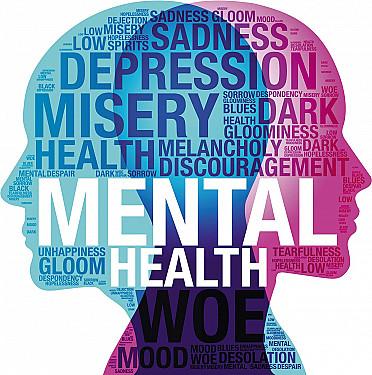In an era where mental health is increasingly recognized as a critical component of public well-being, the World Health Organization (WHO) is championing a groundbreaking approach: integrating mental health considerations into all policy areas. The initiative, titled “Mental Health in All Policies,” aims to address the multifaceted challenges posed by mental health disorders, which affect millions worldwide, by fostering collaborative efforts across various sectors. This approach not only highlights the urgent need for comprehensive mental health strategies but also seeks to design shared solutions that encourage resilience and promote well-being at community, national, and global levels. As mental health continues to rise as a pressing issue amid ongoing global crises, the WHO’s call to action stands as a pivotal moment in reshaping how governments and organizations prioritize mental health in the policies that govern our lives.
Addressing the Mental Health Crisis Through Comprehensive Policy Integration
In response to the escalating mental health crisis, policymakers worldwide are beginning to recognize the importance of integrating mental health considerations across all sectors. This approach emphasizes the necessity of viewing mental health as a fundamental component intertwined with various policy domains, including education, employment, housing, and social welfare. By implementing cross-sectoral strategies, governments can create an environment conducive to mental well-being, ensuring that every policy decision reflects an understanding of its potential mental health impacts. This holistic view facilitates the establishment of shared goals, fostering collaboration among ministries and stakeholders to develop responses that are tailored to meet diverse community needs.
To effectively address this multifaceted issue, countries must prioritize the allocation of resources and share best practices that highlight successful policy integration models. For instance, initiatives that combine mental health services with primary care can significantly enhance accessibility and reduce stigma. Moreover, the promotion of community-based programs has been shown to yield positive outcomes by empowering individuals at the grassroots level. Here’s a brief overview of potential areas for policy integration:
| Area of Integration | Potential Initiatives |
|---|---|
| Education | Implementing school-based mental health services |
| Employment | Developing workplace wellness programs |
| Housing | Creating supportive housing models |
| Social Welfare | Expanding peer support networks |
Fostering Collaboration Across Sectors for Sustainable Mental Health Solutions
The urgency for mental health solutions has never been more pronounced, necessitating a concerted effort among various sectors. Health ministries alone cannot address the complexities of mental health challenges; thus, collaboration with diverse sectors is crucial. By building alliances with education, employment, housing, and social services, stakeholders can develop comprehensive initiatives that address the root causes of mental health issues.
Strategies for fostering this collaborative spirit include:
- Intersectoral Workshops: Organizing workshops that bring together professionals from different sectors to share knowledge and insights.
- Joint Policy Development: Formulating policies that consider mental health implications across all sectors, ensuring holistic approaches.
- Community Engagement: Involving community members in discussions and decision-making processes, allowing for solutions that resonate with local needs.
Furthermore, collaboration should be supported through structured frameworks. A proposed model for effective intersectoral collaboration could include:
| Sector | Role in Mental Health | Proposed Actions |
|---|---|---|
| Health | Primary care and services | Integrate mental health into primary health care |
| Education | Supportive learning environments | Implement mental health curricula |
| Employment | Workplace wellness | Promote mental health resources for employees |
| Housing | Stable living conditions | Ensure housing policies support mental well-being |
Establishing a shared vision and combined resources across these sectors not only enhances the efficacy of mental health initiatives but also yields sustainable outcomes that can positively transform communities. As we unite efforts, we can pave the way for innovative solutions that respect the nuances of mental health challenges faced globally.
Empowering Communities with Tailored Strategies for Improved Well-Being
Empowering communities to address mental health challenges requires a commitment to understanding the unique needs of each demographic. Effective strategies are developed through collaboration among stakeholders, including local governments, health organizations, and community members. By prioritizing culturally-sensitive approaches and community inclusion, initiatives can be tailored to foster resilience and improve mental wellness. This can be achieved by:
- Conducting comprehensive community assessments to identify specific mental health needs.
- Implementing targeted outreach programs that utilize local resources and talents.
- Encouraging peer-led support initiatives to reduce stigma and build trust.
Moreover, cross-sector collaboration is vital for implementing sustainable mental health practices. These partnerships can leverage various resources, leading to a more integrated approach to well-being. Data-driven decision-making plays a crucial role in developing shared solutions that effectively tackle mental health challenges. Communities are encouraged to utilize evidence-based practices that can be continuously refined through feedback and evaluation. A structured framework may include:
| Key Factors | Action Steps |
|---|---|
| Community Engagement | Host regular forums for feedback and discussion. |
| Resource Allocation | Identify and allocate funding for mental health services. |
| Policy Development | Collaborate with policymakers to advocate for mental health-friendly regulations. |
Wrapping Up
In conclusion, the integration of mental health considerations across all sectors—an approach highlighted by the World Health Organization—serves as a clarion call for policymakers and communities alike. As the global awareness of mental health issues continues to rise, addressing these challenges through collaborative, cross-sector solutions has never been more vital. By fostering partnerships that break down silos, stakeholders can develop comprehensive strategies that not only promote mental well-being but also enhance overall societal resilience. The WHO’s call to action reminds us that mental health is not merely a healthcare issue, but a multifaceted challenge that affects economic stability, social cohesion, and public health. As nations strive to implement these insights, the hope is for a future where mental health is prioritized across all policies, creating a more supportive environment for everyone. The journey towards improved mental health outcomes is a shared responsibility, as we collectively seek to build a healthier, more inclusive world.














